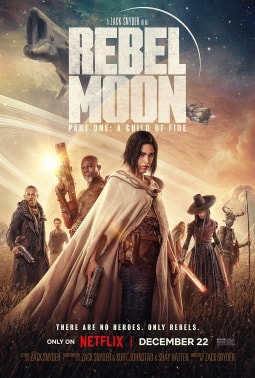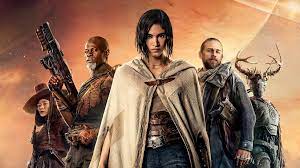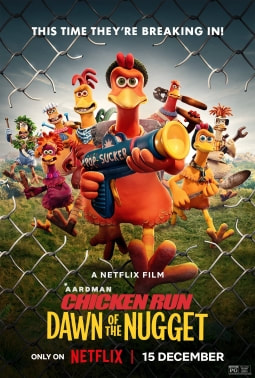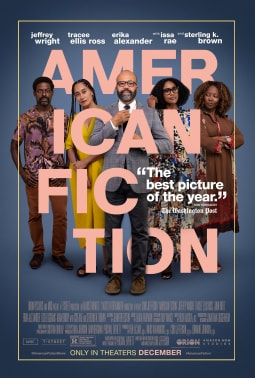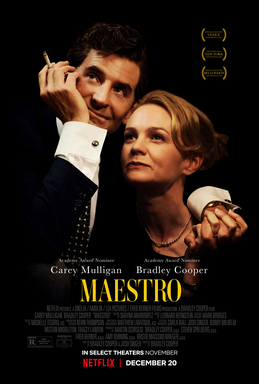|
“Spy x Family Code: White” stars Takuya Eguchi, Atsumi Tanezaki, Saori Hayami, and Kenichirō Matsuda. Released in Japan on December 22, 2023, the film has the Forgers unexpectedly finding adventure during a winter getaway. The film was directed by Takashi Katagiri, and it is based on the manga series by Tatsuya Endo. Families are anything but ordinary, but we love them regardless of their dysfunctional personalities, whether they’re by blood or not. However, this family takes “abnormality” to another level…by pretending to be one. Tatsuya Endo’s manga series about a spy forming a “normal” family to prevent a war between rival nations was a bonafide hit when released in 2019, selling over 34 million copies as of this writing. It even received critical acclaim for its comedy, story, characters, and action. In response to the massive success, the manga spawned an anime television series in 2022, which gained the same amount of praise for translating the manga to the screen. Currently, the series only consists of two seasons, and its third season has yet to be announced. While the show’s future hasn’t been written yet, that doesn’t mean we’ve seen the last of the Forgers. Following the release of the first season of “Spy x Family”, a feature film was announced at the Jump Festa 2023 event, taking the characters on an unforgettable winter vacation. Although, this vacation is far from relaxing, especially with the Forgers around. After having a successful box office run in Japan around the holidays, the film finally reached the United States this weekend for American fans to join the spy-centric party. Considering my immense enjoyment of the series, this was something that I shouldn’t save for last. Does it deliver a continuation as fun and hilarious as the series, or is this family vacation a bust? Let’s find out. The story centers on the Forgers, a seemingly regular family that isn’t without their secrets. Loid (Eguchi) is the father who’s secretly Agent Twilight, a spy sent on a mission known as Operation Strix to form a pretend family and maintain world peace between the East and the West. Yor Forger (Hayami) is a kind-hearted yet sensitive mother who’s also a skilled assassin called the Thorn Princess. Anya (Tanezaki) is their adopted daughter with telepathic abilities. Neither know each other’s true identities, and they strive to keep their secrets hidden. Loid finds himself in hot water when he receives an order from her handler, Sylvia Sherwood (Yūko Kaida), to be replaced in the operation. To maintain his position, Loid must help Anya pass a cooking class at Eden Academy by making the school principal, Henry Henderson (Kazuhiro Yamaji), his favorite dessert. However, the dessert originated in a snowy region, resulting in Loid and the Forgers traveling there via a “family vacation”. His mission quickly turns south when Anya sets off a chain reaction that puts the world and her family at risk of destruction. As a result, Loid must protect his family from the country’s military squad led by Snidel (Banjō Ginga). “Spy x Family” was one of the shows I didn’t expect to love that much until I started watching it. What seemed like another goofy anime comedy was actually a spectacular mixture of spy action, slice-of-life comedy, and heart. Packed with vibrant animation, memorable characters, and boatloads of charm and laughs, the series is one of my favorite shows in the anime department, sitting comfortably alongside “Demon Slayer” and “My Hero Academia”. Plus, Anya is exceptionally adorable in the series, and Yor’s badass persona was just as satisfying as her motherly side. Yor can kick my butt anytime she wants, and I won’t bat an eye. When I heard about the film, I immediately became excited to see how the franchise would translate as a feature-length movie, let alone one made for theaters. The only anime films I thought were great as theatrical experiences are the ones based on “Demon Slayer” and “My Hero Academia” regarding the animation styles and scopes. Of course, there are also the “One Piece” movies, but I’ve only seen “Red” in the theater, so it’s not enough to compare. So, where does “Spy x Family Code: White” lie regarding the trend of anime theatrical experiences? I would say it’s similar to “One Piece” and the recent “My Hero Academia” movie regarding the canonical universe. It may be inconsequential to the series's overall arc, but the film is a bundle of fun regardless, with just enough stylish action and charm to craft a delectable dessert for anime fans to consume easily. For fans of the show and manga, “Spy x Family Code: White” is a highly fulfilling and comically entertaining expansion to the “Spy x Family” lore whose world-saving plot and scale are worthy enough to receive the big-screen treatment. But that’s not the only reason for the film’s success. It is also a fantastic starting point for newcomers and a fun, witty action comedy for casual moviegoers. The film periodically explores the manga’s concept amid its original narrative, especially regarding its characters and world-building, which should help ease people’s concerns about going into it blind. This direction assists the audience in immediately growing attached to the main characters and their attempts at keeping the faux family together. Unfortunately, this approach also includes squeezing every supporting character from the show into its 110-minute runtime, along with new characters made exclusively for the movie. It can often come across as stuffed or unnecessary, with the prime offender being Yor’s brother, Yuri Briar (Kensho Ono). If you remove him from the film, the story will remain the same. Despite its overabundance of characters, “Code: White” offers exactly what you’d expect from the series: amusing misunderstandings and comical scenarios that balance exceptionally well with its action-packed set pieces and irresistible charm. The difference is that the film is longer and more cinematic. Does it provide quality storytelling on the same levels as Pixar or Studio Ghibli? No, but it doesn’t need to. It’s straightforward but also packs enough heart and humor in its scenarios and characters to compensate for its simplicity. Part of that is due to its stellar voice cast, who reprised their roles from the anime, including Eguchi and Hayami as Loid and Yor, respectively. They delivered the charismatic and infectious flair in their chemistry as they have been in the show, especially Atsumi Tanezaki, who continues to remind me why Anya is one of the best characters in anime history. Anya is undoubtedly adorable, and Tanezaki nails that personality as always. Banjō Ginga was also decent as the film’s antagonist, Snidel, who plans to use a microfilm chip to ignite a war between the East and West. That is, until Anya unintentionally got in the way. Like the show, “Code: White” is produced by Wit Studio and CloverWorks. "Spy x Family" boasts an exemplary animation style that seamlessly integrates satire and action, making it one of the most outstanding elements of the show. The animation's cartoonish expressions and vivid backgrounds capture the essence of this genre-defying series, providing the best of both worlds that left me either laughing my butt off or amazed by its set pieces. Unsurprisingly, “Code: White” shows that the animation companies haven’t lost their groove, especially regarding its exciting action sequences. It also provides a combination of traditional animation and CGI for specific scenes. A few of them may look rough at times, but they’re hardly an issue when this blend is used to the best of its capabilities. Overall, “Spy x Family Code: White” is an immensely entertaining and wholesome addition to the franchise that easily accomplishes its cinematic mission. It’s no secret that the film doesn’t reach the high standards of animation quality regarding its inconsequential plot and abundance of characters. However, it’s still the most fun I had from an anime movie this year, let alone one based on one of the best anime shows in recent memory. Not only does it cater to fans of the manga and series, but it also works for casual moviegoers as a hilarious and suitably simplistic spy adventure that benefits from its lively humor and heart. With its stellar voice cast, great animation, delightful characters, and diverting story, the movie shows that there’s no family vacation without “family”. If you’re eager for more lighthearted adventures with the Forgers or are in the mood for teen-rated anime goodness, you should definitely accept this mission. A-
0 Comments
“Rebel Moon - Part One: A Child of Fire” stars Sofia Boutella, Charlie Hunnam, Ray Fisher, Michiel Huisman, Djimon Hounsou, Doona Bae, Jena Malone, Ed Skrein, Cleopatra Coleman, Fra Fee, and Anthony Hopkins. Released in limited theaters on December 15, 2023, followed by a Netflix release on December 22, 2023, the film has a young woman attempting to save the galaxy from a ruthless regent. The film was directed by Zack Snyder, who also directed films such as “300”, “Watchmen,” “Man of Steel,” and “Army of the Dead.” Aside from family-friendly cartoons, feel-good stories, and movie musicals, the holiday season wasn’t without an imaginative sci-fi adventure to excite the movie-going audience. Disney has Star Wars, and James Cameron brings his creative mind to the world of Pandora in “Avatar”. Now, it was Zack Snyder’s turn to bring an intergalactic adventure to life during the winter season. After making a solid comeback with his first Netflix movie since leaving the DC universe behind, Snyder joined the streaming service once more to deliver an original space opera full of corruption, war, and violence. In other words, it’s “Star Wars” if Zack Snyder had his way. If hanging out with an aquatic superhero wasn’t on your holiday to-do list, then it’s possible that exploring Snyder’s grim galactic world might be. But was it exciting enough to continue Snyder’s winning streak with Netflix? Let’s find out. The movie takes place in a futuristic universe, which is controlled by the Motherworld. The Motherworld uses its military army, the Imperium, led by the tyrannical ruler Regent Balisarius (Fee), to maintain “order” across the galaxy. It’s like the Empire from “Star Wars”, but more ruthless. The story centers on Kora (Boutella), a former member of the Imperium seeking redemption for her past. When the Imperium threatens the moon of Veldt, Kora and her farmer ally Gunnar (Huisman) travel across the galaxy to recruit the universe's most formidable warriors to aid them. The members include former general Titus (Hounsou), mercenary Kai (Hunnam), and cyborg sword master Nemesis (Bae). With her crew in tow, Kora makes a stand against the Imperium as she attempts to overthrow Regent Balisarius and bring peace to the galaxy and herself. Like my experience with the previous Netflix films I reviewed recently, I didn’t find the time to watch “Rebel Moon” until now due to my holiday plans. There were plenty of things in the film that caught my interest, including Snyder and the film’s ambitious sci-fi presentation. Sadly, my Christmas plans got the better of me because, again, nothing’s more important than spending time with family. Man, I’m just about one step away from becoming Dominic Toretto. Thankfully, my recent plans were spaced out enough (no pun intended) for me to finally check it out, especially since part two is releasing in April. With the film being split into two parts and expanded into a franchise, this could mean that Snyder might be cooking something special for our science fiction taste buds. Of course, the only problem that made a huge difference was that he’s releasing an R-rated extended cut of the film soon. After finally watching this gorgeously bleak sci-fi epic, I can definitely see why. While it’s another movie that emphasizes Snyder’s visually stunning presentation, it’s not enough to overcome its familiarity on a narrative and thematic scale. One of the most common things I heard about “Rebel Moon” is that it’s a cross between “Star Wars” and Akira Kurosawa’s “Seven Samurai”, with the former centering on a rebellion against those with power. It also happens to be inspired by Heavy Metal, with its logo paying homage to the magazines. I only heard about “Seven Samurai” through my research, but I am a pretty big fan of “Star Wars,” so that’s more than enough for me to get attached to “Rebel Moon" easily. These inspirations allowed Snyder to create something unique and mesmerizing with his world-building and characters to differentiate from those that came before it. Unfortunately, Snyder instead used them as shortcuts to craft a subpar, by-the-numbers space opera with neither the charm nor the emotion of the classics that inspired it. Part of that is due to the screenplay Snyder wrote with his collaborators Kurt Johnstad and Shay Hatten. I have no doubt Zack Snyder has ambition in his filmmaking skills, especially when handling the cinematography and speed-ramping sequences. His passion for creating epic storylines through his artistic presentation, style, and visuals is still something I admire. However, “Rebel Moon” showcased that his writing struggled to reach the same amount of ambition as his admirable direction. The script had plenty of intrigue in these characters and themes, especially its depiction of redemption and hope amid a controlled society ruled by those with power. Those themes reside in the film’s protagonist, Kora, whose quest led her to regain her belief in hope following her actions working for the Motherworld. Sadly, it didn’t do much to emphasize the depth of those elements regarding the dialogue and genre tropes. It’s easy to see why Snyder wanted to release the R-rated extended cut of “Rebel Moon” because it felt like it left out several parts that could’ve made them more well-rounded. In addition to several sequences edited to fit the PG-13 rating, the movie also lacked the desire to showcase more of its supporting characters, making them one-dimensional expendables. I think if they remade it as a television series instead of a feature-length film, it would’ve given the creators more opportunities to expand their characters and the world built for “Rebel Moon” and provide actual stakes to get more people interested in the brand. Don’t get me wrong. The production designs were pretty darn good for its bleak, galactic locations. It’s that there’s not enough of this universe for me to get myself fully invested. Maybe that’ll change once part two and the film’s extended cut come out, but we’ll see. While the characters don’t have enough moments to be memorable, the cast behind them made the most of this predicament through their performances. They’re not spectacular, but I wouldn’t call them terrible, either. Sofia Boutella has had a pretty interesting career as a supporting actress since she made herself known to the public in “Kingsman.” By that, I mean she played an alien warrior in “Star Trek Beyond” and an undead Egyptian princess in the failed “Mummy” reboot. “Rebel Moon” saw Boutella taking on the challenge of carrying the film as the main character instead of taking the back seat regarding her role of Kora. The best thing I can say about Boutella’s performance is that she captured Kora’s ruthless yet internally troubling personality reasonably well. Djimon Hounsou and Anthony Hopkins also provided some decent moments as Titus and Jimmy, a mechanical knight, respectively, despite the latter having a minuscule role. However, I would say that Michiel Huisman was the weakest of the bunch, as his performance as Gunnar was as flat as an intergalactic pancake. Another element that elevated “Rebel Moon” was the visuals. As I mentioned earlier, Zack Snyder can do no wrong with his engaging stylistic choices regarding his direction and cinematography. However, he’s also no stranger to making the visual effects coincide flawlessly with his presentation, and “Rebel Moon” is no exception. From its bleak and expansive galactic environments to the creature designs, “Rebel Moon” is science-fiction art that’s engrossing and grimly imaginative, something that only Snyder can accomplish. This film and the upcoming second part shared a budget of $166 million, further showing that you don’t need to spend more than ten mansions’ worth to provide this type of visual craft in a blockbuster. With how grand and impressive the visual effects looked in “Rebel Moon”, it’s still upsetting that it didn’t play at the cinema closest to my location during its limited theatrical run. Overall, “Rebel Moon - Part One: A Child of Fire” lacks strong narrative reinforcements to rebel against its familiarity and underwhelming genre tropes despite coming equipped with its visually stunning presentation. There’s no doubt Snyder remains a respectable filmmaker with plenty of ambition in his gloomy yet stylish vision and visual flair. However, there’s still much to be desired regarding his storytelling, as he relied heavily on its shortcuts to craft a narrative structure instead of using the cliches to make a great one. Regarding its passable cast, decent cinematography, enjoyable action scenes, and strong visuals, the movie is a subpar beginning of Snyder’s sci-fi universe that’ll likely impress his fans. Sadly, the film’s derivative plot, formulaic screenplay, weak characters, and mediocre attempts at providing emotion made it one of the director’s weakest entries in his filmography. Fortunately, my disappointment isn’t enough to damper my interest in the extended cut and the upcoming second part, slated for release in April. Hopefully, these releases will be enough to change my mind about this potential sci-fi franchise for Netflix. C-“Chicken Run: Dawn of the Nugget” stars Thandiwe Newton, Zachary Levi, Bella Ramsey, Imelda Staunton, Lynn Ferguson, David Bradley, Jane Horrocks, Romesh Ranganathan, Daniel Mays, Josie Sedgwick-Davies, Nick Mohammed, and Miranda Richardson. Released on Netflix on December 15, 2023, the film has Ginger and her flock encountering a new threat determined to destroy their sanctuary. The film was directed by Sam Fell, who also directed “Flushed Away,” “The Tale of Despereaux,” and “ParaNorman.” It is a sequel to the 2000 film, “Chicken Run”. Before Laika came around, Aardman Animations changed the stop-motion animation game with their iconic shorts, mainly the ones involving “Wallace & Gromit”. It wasn’t until 2000 that the studio imploded with success thanks to its first feature-length film involving “The Great Escape” but with chickens. Since then, Aardman has been delivering back-to-back stop-motion hits full of charm, wit, and heart, even though they’re not as financially successful as “Chicken Run”. All it took was a lot of effort, creativity, and clay. For its next feature, Aardman decided to revisit the classic that started its theatrical and booming trend by showing what happens to the brave chickens after escaping their farm-sized prison. Not everyone would like to know since the movie doesn’t need a sequel, but hey, someone’s got to distract the kids with something during the winter season. Does it offer the same charm, humor, and heart as its classic predecessor, or is this chicken better off cooked? Let’s find out. The story centers on Ginger (Newton), a chicken living in a peaceful bird sanctuary with the other chickens after successfully escaping from their prison farm. She is happily married to the former circus rooster Rocky (Levi) and is raising their young and adventurous daughter Molly (Ramsey). However, the chickens’ harmonious lives come crashing down when they discover a new and heavily-improved farm by their island village. This tightly-secured farm is set on turning its captured chickens into nuggets. Even worse, Ginger’s former owner, Mrs. Tweedy (Richardson), is now part of the operation as she seeks revenge against the chickens that escaped her grasp. To protect their freedom from becoming food, Ginger and her crew must do the impossible by breaking into the farm and shutting its business down for good. “Chicken Run” was one of the first movies that introduced me to stop-motion animation, along with “Nightmare Before Christmas”, let alone one made of clay. I may not have returned to it that much recently, but I remember liking it for its clever story and humor when I was young. It’s also why I grew fond of Aardman for providing charisma and charm to its simplistic stories and old-school stop-motion animation, especially “Wallace & Gromit”. So, this long-awaited sequel on Netflix was like a family reunion for my childhood nostalgia. However, it’s also another Netflix film I couldn’t find the time to watch and review due to my holiday plans getting in the way. As much as I wanted to, I couldn’t deny the importance of spending quality time with my family. With that now behind me, I found the time to reunite with the talking, strategic chickens I grew up with. Was it worth the wait? Well, it’ll heavily depend on how you like your nuggets. “Dawn of the Nugget” is another animated sequel that doesn’t need to exist but offers enough enjoyable moments in its plot and charming antics to provide a delightful, family-friendly diversion. If you didn’t mind “Chicken Run” getting a sequel, then there’s a good chance you’ll have an easy time digesting this piece of fast food. However, if you’re intensely passionate about the first film regarding its clever and fun premise, you probably won’t find anything special in this long-awaited follow-up. Personally, I’m on both sides of this chicken coop. While “Dawn of the Nugget” has its fair share of charm and heart we’ve come to expect from Aardman, its story lacked a special kind of seasoning that made its predecessor a delectable classic. We all knew that “Chicken Run” is a family-friendly version of the Steven McQueen classic, “The Great Escape,” but with chickens. For “Dawn of the Nugget,” the concept flips into a heist-like adventure involving Ginger and the others breaking into the farm to rescue the chickens instead of escaping. Additionally, the movie provides a family-friendly message involving bravery and freedom, mainly from Molly's willingness to save her kind regardless of the danger. Ginger also learns that freedom isn’t just about escaping from the fear corrupting her but facing it head-on to protect her family. It isn’t without a few instances of Aardman-esque charm and British wit that’ll delight several fans and newcomers. Unfortunately, its narrative didn’t have the same flavor as its predecessor to match Aardman’s previous works. With the story shifting gears into heist action territory, the sequel resorts to several familiar cliches to carry its charismatic plot. That includes its characters, with Ginger being the overprotective mother attempting to leave her past behind, Molly as the brave yet curious pre-teen, and Rocky has the looks and heart that compensate for his stupidity. It’s the usual narrative we’ve seen in other family-friendly movies, making it seem like another unnecessary piece of animated direct-to-video mediocrity, or in this case, direct-to-streaming. However, it’s another example of making a straightforward plot watchable and mildly fun regardless of its derivativeness. Aardman usually provides these ingredients to craft clay-filled art that entertains young kids and their parents, and “Dawn of the Nugget” is no different. Sure, its narrative may not live up to some of the other quality-filled animated features, but that doesn’t make it less entertaining, at least in my eyes. Regarding its voice cast, “Dawn of the Nugget” saw a pretty big overhaul in its lineup. Most of the first film’s main cast, including Julia Sawalha (Ginger) and Mel Gibson (Rocky), have been replaced with different actors, including Thandiwe Newton and Zachary Levi. However, some of the supporting actors from its predecessor managed to reprise their roles, including Jane Horrocks as Babs and Miranda Richardson as Mrs. Tweedy. As expected, the new-ish cast made a decent effort to maintain the characters’ likability and humorous charm despite them being formulaic, especially Newton as Ginger. Zachary Levi is pretty much an actor who’s just here to provide a bigger draw for his audience, even though his performance as Rocky was fine. Nothing too special other than Zachary Levi being himself. Bella Ramsey, who recently had a successful run with “The Last of Us”, was also decent as Molly, and Jane Horrocks as Babs always makes me smile with her dimwitted but kindhearted personality. Finally, we have the film’s stop-motion animation. It bears repeating that Aardman can do no wrong with its presentation and production designs. The studio delivered another engaging piece of stop-motion craftsmanship that emphasizes its locations, slapstick, and often intense action. The Chicken Island is a lovely chicken-filled paradise, and “Fun-Land Farms” is a bright and colorful sanctuary that hides a dark secret. Everything you expected from the iconic animation studio remains present in “Dawn of the Nugget”, which is more than enough to overcome its less-than-stellar narrative. I’m not sure how else I should explain it. The animation is just that good. Overall, “Chicken Run: Dawn of the Nugget” offers the usual Aardman ingredients to provide a mildly tasty nugget that lacks the strong flavor of its predecessor. It’s not without a few fun moments involving its cast, hit-and-miss humor, and animation that’ll delight specific viewers who have fond memories of the first film. They also might be enough to entertain families looking for content to watch with their kids. Unfortunately, regarding its formulaic storytelling, the film doesn’t add much else to this juicy chicken to savor everyone’s taste, especially those who don’t need a follow-up to the already-perfect animated classic. It’s unnecessary but delectable enough for me not to mind its existence. C+“American Fiction” stars Jeffrey Wright, Tracee Ellis Ross, John Ortiz, Erika Alexander, Leslie Uggams, Adam Brody, Issa Rae, and Sterling K. Brown. Released on December 15, 2023, the film has a novelist-professor unexpectedly finding success with his “Black” book. The film was written and directed by Cord Jefferson in his feature directorial debut. Jefferson is a journalist known for writing television shows like “The Nightly Show with Larry Wilmore,” “Master of None,” “The Good Place,” and “Watchmen.” It is based on the 2001 novel Erasure by Percival Everett. There have been many times when we have expectations for a specific type of media based on a creator’s vision. But sometimes, we set our expectations based on anything else from that same creator based on their beliefs, culture, and skin color. This film happens to be one of those occasions. After waiting patiently for this one since its release last month, the latest and most-buzzed awards contender has finally arrived in wide release amid its sea of newer movies fit for different demographics. With how much praise it received, especially during awards season, there’s no doubt that I was willing to see what the hype was about. With that said, let’s see if this “book” has enough bite in its commentary to earn its fame. The story follows Thelonious “Monk” Ellison (Wright), a writer and professor residing in Los Angeles. He has written numerous academic novels that were praised yet were selling poorly. Even worse, he’s been receiving criticism for not being “black enough”. After a series of unfortunate events disrupted Monk’s life, including reuniting with his estranged brother Cliff (Brown), he decides to write a manuscript meeting the expectations put on black writers amid a stereotypical, melodramatic plot. What seemed to be a joke made by Monk became an unexpected turning point in his career, with him receiving widespread fame and acclaim. As a result, Monk navigates and maintains his success by adopting a stereotypical alias, “Stagg R. Leigh,” placing himself in a society that he despises. This is another movie that immediately caught my attention regarding its marketing. It wasn’t just because of its impressive lineup. It’s also because of the concept it brought to the table that resembles what some creators may be going through, especially those from different cultures. I’m more of a reviewer than a creator or an author, but I understand that recognizing myself as a person matters, regardless of the content I create. So, as soon as I saw that “American Fiction” was playing at the cinema closest to me, I knew that seeing it would be my top priority, especially since I’m preparing for the Critics Choice Awards and the Oscars. After finally watching it, do I think it deserves the praise it’s been getting since its release? Absolutely. “American Fiction” is another well-directed movie that combines its entertaining and endearing plot with relatable and crucial commentary that’s not as pandering or ugly as a “black book”. From the storytelling perspective, “American Fiction” seemed to be another film involving a misunderstanding, resulting in a series of comical attempts to keep the lie going. Of course, those include jokes involving race and stereotypes, hence the R rating. However, the movie offers a lot more than your typical adult comedy. It provides what the marketing suggests, but underneath its surface, it reflects people’s unhealthy expectations toward an author’s work based on their culture. In this case, it’s the success of African American literature based on stereotypes relating to drugs, trauma, gang violence, and police brutality, especially when white people drive that success. It paints a miserable, yet somehow true, picture of people’s inability to understand a creator as a person instead of letting their expectations be based on dated labels and jokes. It’s also essential for these creators not to let those expectations drive them to success instead of doing their own thing. Through Cord Jefferson’s direction and script, the film explores these truthful topics in an honest, insightful, and comical light. Sure, it’s fun to laugh at some race-related jokes occasionally, but they can grow stale when they overuse them. It’s like how we see modern adult comedies. They can be fun for a while until we’ve grown sick of someone making a sex gag every few minutes. “American Fiction” managed to find meaning in these adult jokes by properly satirizing how we see society today. As a result, the humor lands almost every time. It’s not just because of how cleverly written Jefferson’s screenplay is. It’s also because of its relatability, especially for the African American community. The comedy aspect also works really well with its endearing moments involving Monk and his family and its reflective ending. Without saying anything spoiler-related, I will say that it’s one of the conclusions that perfectly summarizes what they’re saying in their themes without relying on corny tropes. It’s a balance that never forgets to focus on providing fun and heart while getting the message out. In addition to the direction and screenplay, “American Fiction” emphasizes the talents of the cast, especially Jeffrey Wright. Wright has impressed me numerous times recently in other films and television shows, mainly Marvel’s “What If…?”. However, I think his role as Monk might be his most thoughtful and humorous performance yet. Everyone thought this was Wright’s best role of his career, and after watching it for myself, I would have to agree. It might’ve been his deep and calmly smooth voice that won me over, but it’s also how he portrays Monk’s complex emotions regarding his perspective of his predicament that made me see him as a compelling actor. It might not be enough for Wright to beat out the other award-worthy actors he’s competing against, but I’m happy he got the attention he deserves. Sterling K. Brown was also stellar as Cliff regarding his humor and heartfelt chat with Monk, and Issa Rae delivered a solid portrayal of Sintara Golden, another author who fell victim to people’s expectations. John Ortiz also provided some pretty humorous moments as Arthur, Monk’s agent. Overall, “American Fiction” successfully rewrites the pages of the “black book” scenario with a mixture of comedy, heart, and commentary that’s impossible to put down. It may leave specific people feeling uneasy regarding the portrayal of its themes, but I think that’s the main point of it. It’s supposed to make them uncomfortable so that they understand the importance of respecting black people as human beings and not letting their biases judge them and their work blindly. Cord Jefferson’s directorial debut is a miraculous and consistently entertaining representation of this mature yet offensive topic that benefitted enormously from its engaging cast, witty screenplay, and a well-balanced sense of direction for its tone. If it’s playing at a theater near you, I recommend you check it out and remember to treat others how they want to be treated, including authors and creators. A“Maestro” stars Carey Mulligan, Bradley Cooper, Matt Bomer, Maya Hawke, and Sarah Silverman. Released in limited theaters on November 22, 2023, followed by a Netflix release on December 20, 2023, the film chronicles the life and career of composer Leonard Bernstein. The film was directed by Bradley Cooper, known for directing the 2018 remake of “A Star Is Born” and producing films like “American Sniper” and “War Dogs”. We have a lot of things to look forward to this year, including movies. Of course, one of them is the tail end of the awards season, where the nominated films and stars go head-to-head to win the trophies that none of us cared about recently. Well, except me, of course, as I watch the award ceremonies to show my support for the nominees. However, that doesn’t mean I can’t get caught up on the other 2023 nominees I missed out on. That includes the latest feature film from actor/director Bradley Cooper that just came out on Netflix last month and was nominated for four Golden Globe awards. Does this movie strike a harmonious chord in the cinematic biopic genre? Let’s find out. The story centers on Leonard Bernstein (Cooper), a young man working as an assistant conductor in New York City. He experienced his first sign of fame when he made his conducting debut a rousing success. As Leonard raptures in his newfound fame and explores his homosexuality, he eventually meets and weds an aspiring actress named Felicia Montealegre (Mulligan). Afterward, their relationship experiences several obstacles while Leonard continues to climb his way toward music glory. I’ve been on and off about watching “Maestro” since it appeared on Netflix. I was waiting to see if my mother wanted to see it, but we couldn’t find the right time to sit down together. The same could be said for me as I was busy accomplishing my new year goal, which is going well if you’re wondering. After days of speculating, I decided to take the day off from other things and watch this depiction of the famed conductor before the upcoming Critics’ Choice Awards. Did I make the right choice regarding my quest to watch as many award contenders as possible? Of course, I did. It’s far from the greatest thing since Bernstein’s remarkable debut in 1943, but it does serve as another suitable and well-acted representation of Cooper’s talents as an actor and filmmaker. “Maestro” depicts the life of Leonard Bernstein inside and outside his career as a famous conductor. You know, like the many other biopics we’ve seen before. However, the story is mainly about his relationship with Felicia Montealegre, who gains success through her acting business. The best way for me to describe “Maestro” is that it resembles life as music. It’s full of emotions that drive the people living and breathing in it, whether they’re listening to it, playing it, or, in this case, conducting it. The relationship between Leonard and Felicia has its happy moments, but it also isn’t without moments of sadness and anger, mainly the former for its poignant third act. It’s a complex yet endearing and heartbreaking reflection of the ups and downs of marriage and the strength these people carry to overcome their secrets. Of course, those include Leonard’s homosexuality. Regarding the screenplay by Bradley Cooper and Josh Singer, the film doesn’t quite reach the high standards of its emotional themes and storytelling, especially when it barely scratches the surface of most of Bernstein’s life. Then again, the film would’ve been way longer than it should when you consider its slow pacing. Thankfully, the sour notes from its solid story and pacing were easily overpowered by most of its melodic ones. One note worth mentioning is the cast, especially the main leads. Bradley Cooper delivered another marvelous performance that should emphasize his acting career. He completely disappeared into the role of Leonard Bernstein with his authenticity and sheer charisma, especially when he highlights the complexity of his choices. Carey Mulligan was also fantastic as the emotionally compelling Felicia, with the scene involving her and Leonard during the Thanksgiving Parade being one of the best parts of her performance. With these two talented actors on display, they create a chemistry that’s as harmonious and sublime as an orchestra due to Cooper’s direction. What I loved about Cooper’s iteration of “A Star Is Born” is how he made the musical elements and the characters go hand-in-hand in perfect harmony. He understood that the characters' relationship and chemistry are as critical as the symphony driving them. If the characters are humane enough regarding the actors playing them and the script, you have a compelling musical composition that’s pleasant to the ears. Cooper provided a similar tactic for “Maestro”. While it didn’t match what his directorial debut offered emotionally, it still delivered sweet music for my eyes and ears to endure, even with its pacing. Additionally, Cooper developed a well-crafted vision that fits the aesthetic and visual style of Bernstein’s life, which benefitted from Matthew Libatique’s cinematography and the film's production design. It also had some impressive editing moments that made the transitions and presentation look seamless and upbeat, especially for the 1940s sequences. But, of course, the actors aren’t the only reason the characters look and feel authentic. Another reason is the outstanding hair and makeup design that brought these people to life. The person responsible for these designs is Kazu Hiro, who recently won an Oscar for “Darkest Hour” and “Bombshell”. Based on what I’ve seen, I think his work in “Maestro” could earn him his third award because of his passion for transforming recognizable actors into the characters they’re playing. That includes Cooper, who’s almost unrecognizable as Bernstein thanks to the prosthetics they used. Speaking of which, I would like to point out that the “Jewface” criticism was unnecessary. Overall, “Maestro” is a well-crafted symphony that has more tuneful notes than the less-than-harmonious ones. Regarding the narrative, 2018’s “A Star Is Born” left more of an impact on me than Cooper’s sophomore debut. Fortunately, it has enough melodic beats in the music, cast, and presentation to provide a solid performance worthy of Cooper’s conductive filmmaking skills. If you like Cooper and have a Netflix account, the film is worth a watch, but be prepared for the emotional moments amid its orchestral sequences. B |
Home of the most friendly movie reviews on the planet.
Categories
All
Follow Me |
- Home
- Classic Reviews
- 2015 Reviews
- 2016 Reviews
- 2017 Reviews
- 2018 Reviews
- 2019 Reviews
- 2020 Reviews
- 2021 Reviews
- 2022 Reviews
- 2023 Reviews
- 2024 Reviews
- Movie Talk
-
Fan Fictions
-
Ed, Edd n Eddy: The Ultimate Ed-Chronicles
>
-
The 'Beginnings' Saga
>
- Ed, Edd n Eddy: The Rise of Maleficent >
- Transformers: Legend of the Black Cauldron >
- Ed, Edd n Eddy meets the Penguins of Madagascar >
- The Eds and Iron Man: Dawn of the Blowhole >
- Ed, Edd n Eddy: The Fast and the Furious >
- The Eds and Kung Fu Panda: Battle for China >
- Ed, Edd n Eddy and the Lion King: The Full Circle >
- Ed, Edd n Eddy meets Thumbelina: Revenge of the Shredder >
- Ed, Edd n Eddy: Journey to Neverland >
- Ed, Edd n Eddy: All Tangled Up >
- Ed, Edd n Eddy's Frozen Adventure >
- Ed, Edd n Eddy's Edventures in San Fransokyo
- Ed, Edd n Eddy: Return to Neverland
- Ed, Edd n Eddy vs The League of Evil
-
The 'Avengers' Saga
>
- The Eds and the Little Mermaid: Age of Extinction
- Ed, Edd n Eddy meets the Ghostbusters
- Ed, Edd n Eddy: A Sea of Adventure
- Ed, Edd n Eddy meets Anastasia
- Ed, Edd n Eddy in Who Framed Roger Rabbit?
- Ed, Edd n Eddy meets the Incredibles
- Ed, Edd n Eddy and the Lion King 2: Simba's Pride
- Ed, Edd n Eddy: Brand New Zootopia
- Ed, Edd n Eddy: Into the Sugar Rush
- Ed, Edd n Eddy and the Big Sea Quest
- Ed, Edd n Eddy: Heroes Assemble
- Fastformers: Rio Heist
- The Loud Ghostbusters >
-
The 'Beginnings' Saga
>
-
Ed, Edd n Eddy: The Ultimate Ed-Chronicles
>
- Contact
- About



